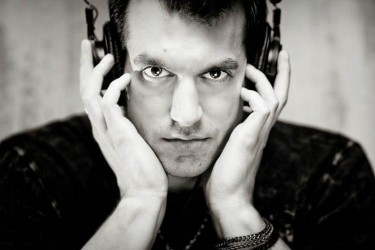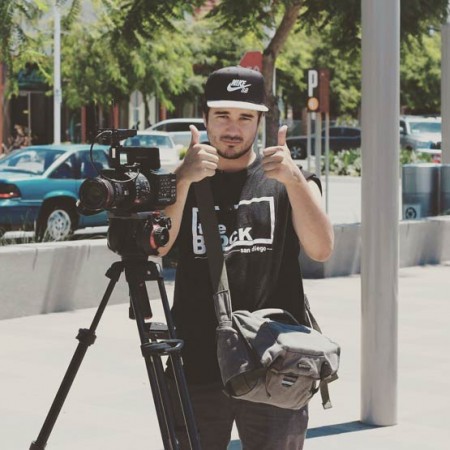Working out of Luminous Sound Studios in Dallas, Texas, Recording Connection mentor Tre Nagella is a top-shelf producer engineer who has worked with major artists like Lady Gaga, Blake Shelton, Christina Aguilera and many others. He’s also a two-time Grammy-winner who is up for a possible third Grammy next month for his work on the latest Kirk Franklin project—namely, the song “Wanna Be Happy?” which is nominated for Best Gospel Performance/Song. Thankfully for our students, Tre also enjoys passing his knowledge and experience on to Recording Connection apprentices, encouraging his students to spend as much time in the studio with him as possible.
In the following interview with RRFC, Tre talks about winning his first Grammy, weighs in on embracing the imperfections that keep the “humanity” in the music, and offers key advice for students about how to make the most of their experiences in the studio.
* * * * *

Recording Connection mentor Tre Nagella
I guess, the first time around…it’s a funny story. I didn’t even know that I would win, honestly, the first time. I always thought that that was something intended for the artist. So the album was nominated, and I knew the album was up, but I had no idea that the engineers and the people associated with the product could win. So it was a pretty big surprise. I actually didn’t find out until about three weeks after the Grammys. That’s when I got a call from the Recording Academy—they wanted to send me paper work to sign for my trophy…I probably sounded like an idiot, asking them, “I’m not sure what you’re talking about.” Then they said, “You are Tre Nagella, right? You did do this album, right? You do know that it won a Grammy, right?”…But as far as how it changed my relationship in the business…I probably thought at the time that all of a sudden, the floodgates would open and my career was going to skyrocket or something magical would happen. And the truth is, it really didn’t. I’m still doing pretty much the same thing I’ve always done. I think the only difference is when people find that out, there is a little bit of instant respect there, a little bit of instant credibility, so people take you a little more seriously…As soon as they see the Grammy winner, all of a sudden people go, “Well, it’s not immature anymore. He’s not messing around, this guy’s serious, he’s for real.” Really, that’s the only big difference.
RRFC: Who have been some of your favorite artists to work with, or your favorite sessions?
Tre: The client that I’m closest with, and have spent the most time with, is a gospel artist named Kirk Franklin. He and I are very good, close personal friends. And at this point, I’ve done five different projects with him, so I’ve probably logged upwards to 5,000 hours in a room with that guy. So I would say that he’s definitely one of my favorites just because we’re very close and we have a lot of fun working together. I’ve worked with Blake [Shelton] on a number of occasions, and he’s a really funny guy. Obviously, he’s a superstar and everyone sees him on The Voice and late night talk shows. And if you’ve ever seen him on television, his personality really comes through, and that personality that you see on television is very much just him…We got the opportunity to spend about four days with Lady Gaga and…it was a few years ago, but she really impressed me with how focused she was and what a clear vision she has for everything.
RRFC: What makes Luminous Sound a great place to record and to learn?
Tre: It’s a world-class studio. We’re in Dallas, Texas but I would put this place on par with anywhere in L.A., New York, Miami and any other world-class type facility, as far as equipment, acoustics, and the people, most importantly. I think that’s probably what makes any facility a top-notch place to record.
RRFC: How do you go about showing people that you are available and you are willing to work with their budget?
Tre: Just talking to people and trying to be personable and humble. It’s not necessarily about me being perceived as high-end—you get what you pay for, so that’s not necessarily a bad thing. I would rather be perceived as high-end and expensive than cheap and whatever…But I have to make sure to tell people, “Hey, I’m open, I’m open to working on your stuff,” and I make sure to tell people that it’s not all about the money for me. I just still want to work on great projects, I want to work with people that I really like working with.
RRFC: You’re passing along that knowledge to a budding generation of engineers as well.
Tre: Yes. I had a number of mentors when I was young, coming up, in my early teens, early 20s. I did the typical rounds of entering the studios and assisting other engineers that were more experienced than I was and had some really good guys who were open to share their knowledge, teach me or let me watch, just sit in with them. And they kind of…it helped me learn, and it motivated me to do this. So now is my opportunity to do the same thing for someone else…I can’t take everyone, but if I can…if I get a good student, I get to share the knowledge and I still have the passion for doing this. So it’s fun for me to explain it to someone else and see them light up.
RRFC: It seems like we’ve become addicted to screens in the studio, with the DAW and tracking on the grid. Do you think working on a grid has taken away the pocket over time?
Tre: Everyone loves the visual, and that’s fine, it’s certainly helpful, but…we didn’t always have the screen to look at. The most important thing is using your ears. You have to learn to tune the visual out and use your ears sometimes…Cutting things to a click track is important. I’ve done some projects, where we do what I call “freewheeling it” where it’s not done to a click…






